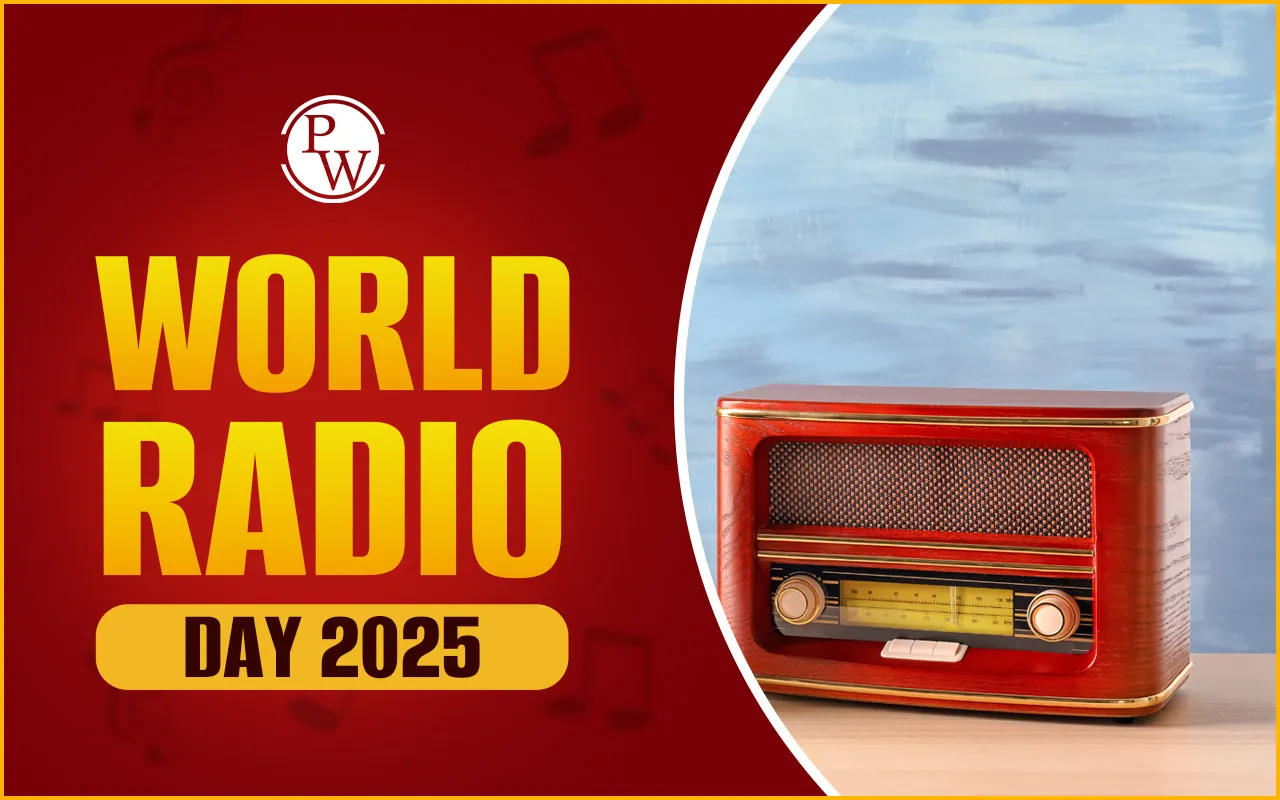
The World Radio Day is celebrated every year on 13th February to recognise the impact of radio as a powerful medium of communication. Prime Minister Shri Narendra Modi wished everyone on World Radio Day 2025 and invited them to share ideas for this month's Mann Ki Baat on the 23rd.
Radio has been instrumental in shaping public opinion, sharing knowledge, and promoting cultural exchange. With the advancement of digital technology, it continues to evolve, remaining relevant in today’s fast-paced world. World Radio Day 2025 aims to celebrate radio’s contribution and encourage its continued growth to tackle issues like climate change.
World Radio Day 2025 serves as a reminder of radio’s ability to reach millions worldwide, even in remote areas where other forms of media fail. To mark its significance, this day was established by UNESCO in 2011. It highlights the role of radio in spreading awareness, promoting dialogue, and ensuring unity.
|
World Radio Day 2025 Overview |
|
|
Date |
February 13, 2025 |
|
Theme |
Radio and Climate Change |
|
History |
UNESCO officially declared February 13 as World Radio Day in 2011 |
|
Significance |
Acknowledges radio's enduring power as a communication medium |
|
Campaign |
#WorldRadioDay |
|
Celebrations |
Special radio programs, interviews, discussions, workshops, and seminars exploring radio's future. |
The theme for World Radio Day 2025, "Radio and Climate Change" emphasizes the crucial role of radio in addressing climate change. This theme encourages radio stations to focus on climate-related issues, raising awareness, educating listeners, and inspiring collective action. As a widely accessible medium, especially in remote areas, radio can reach diverse audiences with important messages about protecting the planet.
World Radio Day was proclaimed by UNESCO in 2011 and later adopted by the United Nations General Assembly in 2012. The initiative was originally proposed by Spain to highlight radio’s enduring role in education, culture, and crisis communication.
The first World Radio Day was celebrated on 13th February 2012, commemorating the establishment of United Nations Radio in 1946. Since then, it has been observed globally, bringing together governments, broadcasters, and communities to discuss the challenges and opportunities radio faces today.
The invention of the radio is attributed to multiple scientists. Guglielmo Marconi is credited with pioneering wireless telegraphy in the late 19th century. Key milestones in radio history include:
Radio broadcasting in India began in the early 1920s with private radio stations in Bombay and Calcutta. Here is a brief history of radio in India:
Today, India has a vast network of AM, FM, and digital radio stations, with AIR being one of the largest media organizations in the world, covering nearly 92% of the country's area and broadcasting in 23 languages and 146 dialects.
World Radio Day 2025 highlights radio’s impact on education, disaster relief, public awareness, and cultural promotion. Radio continues to be a trusted medium, especially during emergencies and natural disasters, where it provides timely and life-saving information:
World Radio Day 2025 celebrates the power and influence of radio in modern society. Despite technological advancements, radio remains accessible, reliable, and influential. As we move forward, it is essential to preserve and innovate radio broadcasting for future generations.
Are you preparing for UPSC exams? Enhance your preparation with Physics Wallah UPSC Courses!